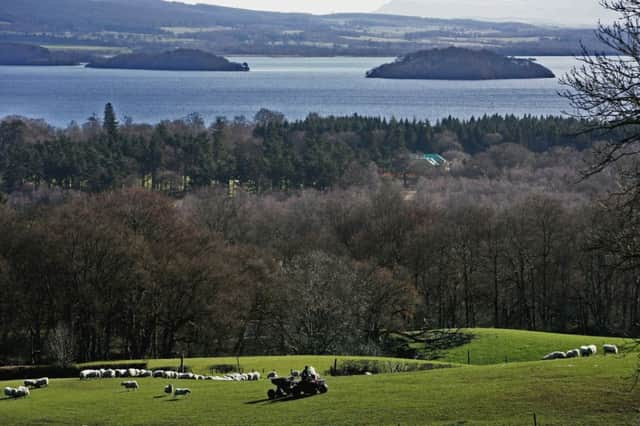Estates must work to win hearts and minds


Many thousands of people are doing what they have always done at this time of year – enjoying the countryside.
Rich natural and built heritage and outstanding scenic beauty make rural Scotland a treasured destination for tourists and day trippers alike. Their enjoyment is a source of great pride and satisfaction for those who live and work in the countryside and hold their part of the world very dear.
Advertisement
Hide AdAdvertisement
Hide AdAt this time of year Scotland’s country estates are at their best. They are a key element of rural Scotland and make a major social, economic and environmental contribution to the countryside.
But for some people they are a constant source of consternation. While the public flock to estates in their thousands to savour the many facilities and attractions, while thousands of rural businesses work in harmony and partnership with estates on a daily basis, the obsession with private landownership from land reform activists continues.
Let me say that I would not for a moment suggest everything in the rural garden is rosy. There are many major challenges in terms of the economy, land use, de-population, transport, education and a host of other issues. These challenges are not unique to Scotland and are encountered by other countries with a substantial rural land base.
Nor do I suggest that all estates are paragons of virtue in playing a constructive and useful role in their communities. There is no section of society where all are exemplary.
Landowners are all too easily stereotyped and, in the main, inaccurately. What that does mean though is that estates and landowners have to work that bit harder to enjoy the trust and confidence of those they work and engage with, and also to counter misguided perceptions.
The question is, therefore, have landowners and estates got the capability and the will to rise to that challenge?
The answer on both counts – from the overwhelming majority – is yes. By the end of the summer those who have flocked to the Scottish Game Fair at Scone, strained every sinew for a winner’s rosette at the Blair Horse trials, run themselves into the ground at Dalkeith as it hosted the Tough Mudder Challenge or have simply ambled through the great houses such as Hopetoun, will tend to agree.
Estates have a lot to offer and they are not the only ones to benefit. Small businesses that base themselves on estates also reap the rewards.
Advertisement
Hide AdAdvertisement
Hide AdAway from the showpiece attractions there are countless other smaller estates hosting events to encourage youngsters to learn more about the countryside through organised visits and activities.
In other commercial areas there are small businesses setting up shop in light industrial units and on land provided by estates; partnerships are being formed to drive forward renewable energy provision and other development projects.
In farming, estates and tenant farmers are by and large rubbing along quite well together, as revealed in a recent government survey which showed that two-thirds regarded their relationship as satisfactory.
There are important areas where things need to be improved in farming relationships, and landowners and estates have to acknowledge the issues that trouble tenant farmers and respond. I think that approach is under way, and fundamentally there is more that unites those of us involved in farming than divides us.
So where do we go from here? It’s understandable that many critical views of estates are rooted in the past. If we celebrate history and heritage then we must recognise that it has also shaped opinions and attitudes of those who take a negative view.
However, to meet the challenges of the future we cannot continually look back. Estate businesses collectively contribute many hundreds of millions of pounds to the Scottish economy. We are a major rural employer and a provider of affordable rental accommodation, and we have a key role to play both in terms of food security needs and the provision of energy.
Estates have to continue to be the best they can be on all fronts in order to get the recognition they feel is due as an integral part of Scottish rural life. The challenge is formidable. We have to spare no effort in continuing to win hearts and minds.
• David Johnstone is chairman of Scottish Land & Estates www.scottishlandandestates.co.uk
SEE ALSO